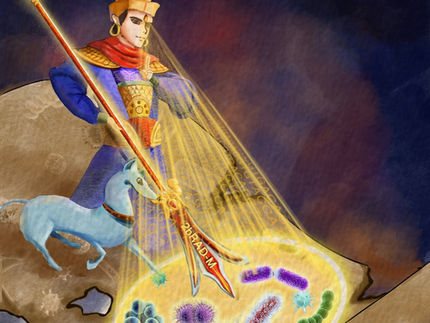Researchers Identify Virus Possibly Responsible for Declining Honeybee Population
454 Life Sciences, a Roche company, announced that researchers at Columbia University, in collaboration with 454, have identified a virus implicated in the deaths of 2.4 million honeybee colonies - tens of billions of bees - using the company's Genome Sequencer(TM) system.
The findings explain how foreign organisms living in and among the bees were identified by reading sequences of DNA isolated from the bee colonies. The study, entitled "A metagenomic survey of microbes in honey bee colony collapse disorder", appears online today, ahead of print, in the journal Science. Using 454 Sequencing technology, Dr. Ian Lipkin, Professor of Epidemiology at Columbia University's Mailman School of Public Health, and colleagues sequenced DNA and RNA samples that were extracted from collapsing and healthy bee colonies in search of any pathogen responsible for the collapse.
The research identified five major bacterial groups, four lineages of fungi and seven types of viruses. While most of the foreign organisms were found in both the collapsed and healthy bee colonies, one virus, Israeli Acute paralysis Paralysis Virus (IAPV), was found only in the collapsed colonies. As the researchers reported in Science: "We have not proven a causal relationship between any infectious agent and CCD; nonetheless, the prevalence of IAPV sequences in CCD operations, as well as the temporal and geographic overlap of CCD and importation of IAPV infected bees, indicate that IAPV is a significant marker for CCD."
"Unbiased 454 Sequencing technology enabled us to rapidly assemble a comprehensive inventory of microflora in Colony Collapse Disorder (CCD) and non-CCD populations, and provided the sequence information needed to identify candidate pathogens," stated Dr. Lipkin. "We view this work as a model for investigating epidemics of unexplained infectious disease"
CCD was first reported in the fall of 2006 in the Unites States. Since then, CCD has been reported in Germany, Switzerland, Spain, Portugal, Italy and Greece. A recent survey of 13 states by the Apiary Inspectors of America showed that over a quarter of U.S. beekeepers have lost, on average, half of their bee colonies between September 2006 and March 2007.
Most read news
Topics
Organizations
Other news from the department science

Get the analytics and lab tech industry in your inbox
By submitting this form you agree that LUMITOS AG will send you the newsletter(s) selected above by email. Your data will not be passed on to third parties. Your data will be stored and processed in accordance with our data protection regulations. LUMITOS may contact you by email for the purpose of advertising or market and opinion surveys. You can revoke your consent at any time without giving reasons to LUMITOS AG, Ernst-Augustin-Str. 2, 12489 Berlin, Germany or by e-mail at revoke@lumitos.com with effect for the future. In addition, each email contains a link to unsubscribe from the corresponding newsletter.























































